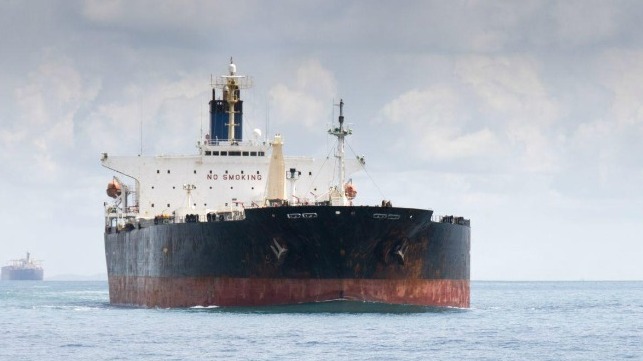Intertanko Supports EU ETS Amendments Breaking with Container Shipping

Intertanko, the International Association of Independent Tanker Owners trade association, announced its support for the proposed amendments that are being discussed by the European Commissions for the pending European Union’s Emissions Trading Scheme. Breaking with other parts of the shipping industry which have been critical of the proposed changes, Intertanko accepts the inclusion of charterers as responsible parties and the introduction of a fund but calls for the monies to be dedicated to the shipping industry’s needs.
The EC is beginning discussions and review of the changes proposed to the ETS program introduced by German lawmaker Peter Liese, who has also been a driver of the program. Liese proposed 114 amendments to the EU ETS saying he seeks to clarify issues, increase accountability for the maritime industry, and accelerate some of the critical elements of the plan. One of the more controversial changes proposed in the language seeks to make the commercial operator of a ship the final entity responsible for the payment of the EU ETS, not necessarily the shipowner.
“The proposed amendments to the EU ETS are a step in the right direction and support the principle that the commercial entity responsible for transportation at sea should also be responsible for meeting the obligations under the EU ETS,” said Paolo d’Amico, Chairman of Intertanko. “It is good that the intention of the commission is now being taken further by incorporating the principle into regulation and making the charterers’ responsibilities clearer.”
The World Shipping Council, which represents containership owners, earlier in the week came out strongly against the proposed revisions to the language saying the changed definition of responsible entity would corrupt the ETS shielding the shipowner from their responsibilities.
Supporting the change, Intertanko says “Expanding the definition of a shipping company, as proposed by Liese, to include the ‘time charterer,’ ensures that those responsible for, and benefiting from, the transportation of the cargo are also responsible for the emissions.” They are, however, questioning if the proposed amendment would define contractual arrangements between the tanker owner and the charterer tightly enough to give reassurance in the case of charter party disputes.
The tanker trade group also supports the establishment of an ocean fund through revenues generated by the EU ETS, to improve the energy efficiency of ships and support investment aimed at facilitating the decarbonization of maritime transport. Like other shipping organizations, they want to see the monies raised through the fund dedicated solely to the shipping industry avoiding transfer to other industry sectors.
While saying that its members support achieving the goal of net-zero CO2 emissions by 2050, Intertanko says it is critical that “funds collected from ships must be directed to efforts to decarbonize shipping, with clear obligations on all other stakeholders, including Member States, to provide and promote alternative fuels/solutions.”

that matters most
Get the latest maritime news delivered to your inbox daily.
“Shipping companies are not technology designers or alternative fuel manufacturers,” said Dragos Rauta, Intertanko’s Technical Director. “Shipping companies contribute by testing technologies and testing new (carbon-free) fuels. The decarbonization of shipping is therefore dependent on the existence of solutions (technologies and fuels) as a means to achieve the targets. The lack of legal obligations on the ‘supply’ side to develop such solutions is a major hindrance.”
The tanker association also agrees with its colleagues, saying that the end goal to this process must be an agreement at International Maritime Organization, with the foreseen EU legislation as a temporary measure until an international measure is in place. They concluded by saying the EU legislation should be shaped with a forthcoming IMO agreement in mind, being both scalable and flexible.
